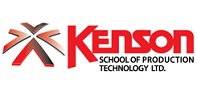10 Mistakes to Avoid in Job Interviews
By: Tracy Tuitt

Interviewing for a job can be challenging, especially in the Caribbean where the job market is highly competitive. Securing a position often requires more than just having the right academic or technical qualifications. During the interview stage, job interviewers look for several key qualities and indicators to determine if a candidate is a good fit for the role and the company. However, candidates often make mistakes that can cost them the opportunity to showcase their skills effectively. Here are 10 mistakes to avoid in job interviews, and how you can correct them to leave a lasting, positive impression.
1. Not Researching the Company
Failing to research the company shows a lack of interest, as well as preparation. Going into an interview without understanding the company’s mission, values, projects, and recent news can lead to generic responses that don’t align with the company’s goals.
Correction: Spend time researching the company beforehand. Understand its current projects, exploration areas, and sustainability initiatives. For instance, if you’re interviewing with a Trinidad and Tobago-based offshore drilling company, knowing the specific regions where they operate and any recent technological advancements they’ve implemented is an indicator of genuine interest and preparedness.
2. Not Practicing Common Industry-Specific Questions
Walking into an interview unprepared for industry-specific questions can result in fumbling for answers and missing key points. Each industry has unique challenges and terminologies that interviewers expect you to be familiar with.
Correction: Prepare and rehearse answers to industry-specific questions such as “How do you stay current with industry regulations?” or “What safety protocols do you practice on your own?” Practicing your responses will help you answer more confidently and coherently.
3. Overlooking the Importance of First Impressions
First impressions are crucial and can set the tone for the entire interview. Arriving late, dressing inappropriately, or having a weak handshake can create a negative perception right from the start.
Correction: Arrive on time, dress professionally (appropriate to the company’s culture), and offer a firm handshake. These actions set a positive tone for the rest of the interview.

4. Focusing Too Much on Yourself
While it’s important to highlight your achievements, focusing solely on yourself can come across as self-centered. Interviewers want to see how you can contribute to the team and company projects.
Correction: Tailor your responses to highlight how your skills and experiences can benefit the company. For example, if you have experience leading a team, explain how your leadership helped improve project efficiency or enhance the company’s operations. This approach shows that you understand the company’s needs and are ready to be a valuable team member.
5. Not Asking Questions
Failing to ask questions can signal a lack of interest or preparation. Interviews are a two-way street, and having a few questions up your sleeve can demonstrate enthusiasm and critical thinking.
Correction: Prepare thoughtful questions that show your interest in the role and the company. For instance, ask about their latest projects, or the company culture. Note: When it comes to questions about the salary, this topic should be bridged carefully and at the right time. It’s best to wait until the later stages of the interview process or when the interviewer brings it up.
Check out this article by Indeed, detailing 15 questions that you can ask a potential employer: https://www.indeed.com/career-advice/interviewing/interview-questions-to-employers

6. Speaking Negatively About Past Employers
Criticizing previous employers or colleagues is one of the biggest mistakes to avoid in job interviews, as they can make you seem unprofessional and difficult to work with. This can be a cause of concern to a potential employer, as it can suggest that you might bring negativity into a new work environment.
Correction: If you must discuss a negative experience, frame it constructively by focusing on what you learned and how it has prepared you for this new opportunity. For example, you might share about an experience where dealing with a challenging safety issue with a past coworker taught you valuable lessons in crisis management.
7. Giving Vague or Generic Answers
In an interview, employers are looking for evidence that demonstrate your unique skillset. Providing non-specific answers can fail to illustrate your true capabilities and experiences, leaving the interviewer less than impressed.
Correction: Use the STAR method (Situation, Task, Action, Result) to structure your answers. This method helps you provide clear and concise examples that demonstrate your skills and achievements. For instance, describe a time when you successfully led a team to complete a project ahead of schedule despite challenges.
8. Not Showcasing Soft Skills
As mentioned earlier, technical skills are crucial, but so are soft skills like communication, teamwork, and problem-solving. Neglecting to mention these can make you appear one-dimensional.
Correction: Highlight both your technical and soft skills. Provide examples of how your interpersonal skills have helped you succeed in previous roles. For instance, explain how your communication skills helped to effectively coordinate between different departments on a large-scale project.
9. Failing to Follow Up
Not sending a thank-you note after the interview can leave a negative impression, suggesting you lack professionalism or interest.
Correction: Send a personalized thank-you email within 24 hours of the interview. Mention specific points discussed during the interview and reiterate your enthusiasm for the role. For example, if you discussed a specific project or initiative, refer to it in your note to show your continued interest.

10. Letting Nerves Get the Best of You
Allowing anxiety to affect your performance can lead to poor communication and presentation. This can undermine your confidence and leave a negative impression.
Correction: Practice relaxation techniques such as deep breathing or visualization before the interview. Remind yourself that the interview is a two-way street, and it’s also about determining if the company is a good fit for you.
To help you prepare better, consider taking part in programs like Kenson School of Production Technology Ltd’s Professional Development Series, where resume writing workshops and mock interviews are offered to students who have completed the Diploma in Oil and Gas. These activities are tailored to the oil and gas industry to help ensure that students are well-prepared to make a great impression.
Conclusion
By taking note of these 10 mistakes to avoid in job interviews, and following the recommended actions, you can significantly improve your performance and increase your chances of landing the job. Remember, preparation, professionalism, and a positive attitude are key to making a great impression on potential employers in the Caribbean.
